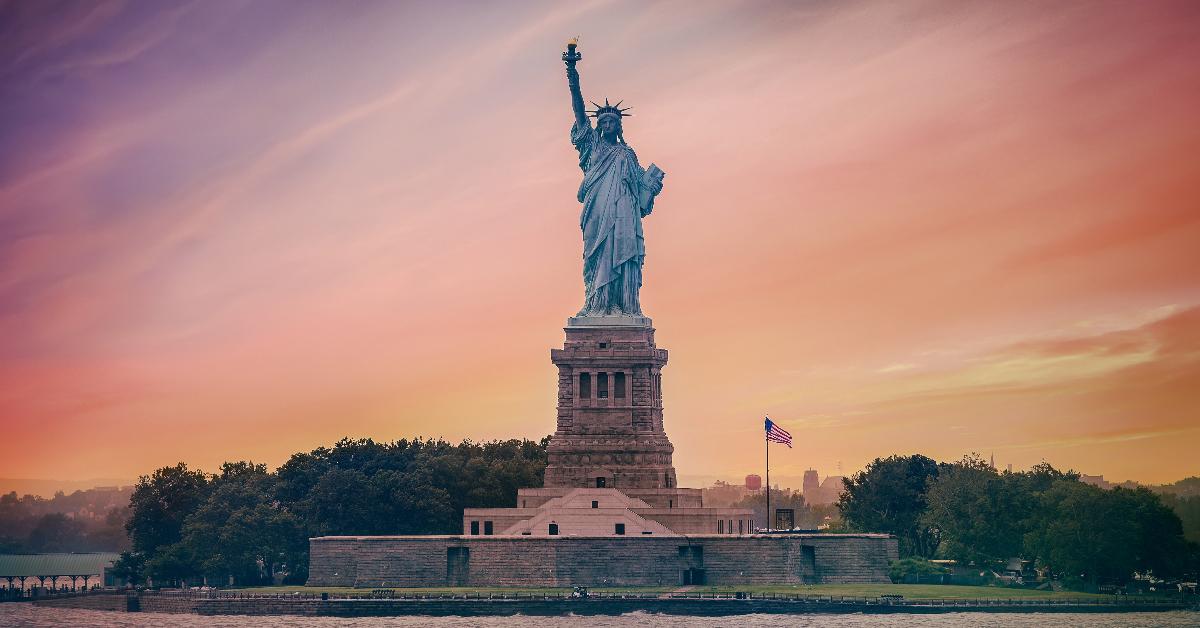
Liberty: Stifled by the Stockholm Syndrome
“Whenever and however [government] is instituted, the people must cede to it some of their natural rights in order to vest it with requisite powers.” (emphasis added)
—John Jay, “Federalist No. 2”
“Like breathing, [government] is not permitted to depend on our volition. Necessity will force it on all communities in some one form or another.”
—John C. Calhoun, A Disquisition on Government
“But whether the Constitution really be one thing, or another, this much is certain—that it has either authorized such a government as we have had, or has been powerless to prevent it. In either case, it is unfit to exist.”
—Lysander Spooner, No Treason: The Constitution of No Authority
Across the globe governments without exception are territorial rulers holding a supremacy of physical force over the people who live within their borders. Rulers promulgate laws and issue mandates to their citizenry, who as taxpayers and holders of their government’s inflated currency are thereby forced to provide whatever funding their overlords claim to need.
This is government as usual, a normal state of affairs. Normal today is the approaching collapse of the new and improved Keynesian house-of-cards economy and a combination of censorship, persecution, and media attacks on those who openly oppose the Orwellian tyranny that will replace it. Nuclear war remains on standby in case it’s needed.
The Fundamental Flaw Persisted at Birth
When the new US states adopted the Articles of Confederation, it represented an attempt to create a government that supported the Declaration’s self-evident truths, but chicanery enabled its replacement with the US Constitution. As the Federalist Papers argued, the proposed new constitution would limit the federal government to those powers expressly enumerated in the document, which would amount to minor infringements on personal liberty while establishing a more “energetic” government.
Yet after its ratification, Alexander Hamilton—secretary of the Treasury and one of three authors of the Federalist Papers—thought the Constitution also had implied powers, noting that the general welfare clause and the necessary and proper clause gave the Constitution “elasticity.” Thus was born the first attempt at a central bank and further expansion of government reach.
But apart from the “powers” debate, the fundamental flaw persisted. The government, not the people it governed, was sovereign. In 1862, Abraham Lincoln emphasized this point in a reply to abolitionist Horace Greeley, founder and editor of the New York Tribune, telling him,
My paramount object in this struggle is to save the Union [i.e., government], and is not either to save or to destroy slavery. If I could save the Union without freeing any slave I would do it, and if I could save it by freeing all the slaves I would do it; and if I could save it by freeing some and leaving others alone I would also do that.
After Robert E. Lee’s Appomattox surrender in April 1865, the Union Lincoln allegedly saved had lost the voluntary-states part of its makeup. The federal government, not the states that created it, was supreme. But could one or more states still secede? In 1869 Supreme Court chief justice Salmon P. Chase wrote in Texas v. White, “The union between Texas and the other states was as complete, as perpetual, and as indissoluble as the union between the original states. There was no place for reconsideration or revocation, except through revolution or through consent of the States.”
The majority opinion ruled “all acts of [unilateral] secession illegal.” The United States was “one nation, indivisible,” meaning sovereignty resides with the rulers, not the people under them.
If Only All Men Were Angels
According to the angels argument, if men were angels and didn’t cheat, lie, bully, or otherwise injure others, we wouldn’t need government. But clearly men are not angels, so we need the power of the state to threaten or punish wrongdoers. Left unanswered is who will be the avenging angels occupying state authority?
Competition among the three visible branches of government to keep each one somewhat angelic, meaning acting on but not exceeding their Constitutional authority, has utterly failed, with the failure most egregiously evidenced in Congress’s abdication of its war powers.
Of course, the electorate is far from angelic as well. Forgetting their country’s founding idea was individual liberty, they have proven to be irresistibly drawn to the siren song of political promises.
Let’s Be Practical
Conceding the truth of the angels argument, supporters of a practical approach to government argue that we can at least try to get the best people in power in order to avoid the worst travesties. Today’s Americans don’t have the moxie for revolution, nor would it be practical, so it’s best to chip away at the beast with reforms.
For some this is a way to travel the long road back to limited government. How it will stay limited is not addressed and neither are the specifics of the limitations. Somehow, even with the best and brightest in power, individual rights fade from consideration as the dominant premise remains state sovereignty. Under that premise limited government tends not to stay limited.
“The Devil We Know”
History is replete with examples of people overthrowing their governments only to find themselves worse off. (For a humorous take on this see Woody Allen’s 1971 movie Bananas.) Why risk a revolution when we can use off-the-grid means to circumvent government tyranny?
As a temporary measure this often works, but it’s a policy only a small minority can practice.
The Cure
Most people don’t have the stomach for an armed revolution unless their government starts shooting at them first. For those conditioned never to pick up a gun, this means surrender.
Fortunately, governments don’t want to obliterate all their constituents: they need their productivity, at least until artificial intelligence gets more viable. Even at their final stage of desperation, which involves forced everything—central bank digital currencies, a bug diet, fifteen-minute cities, perversity as a norm—governments are still finding support. Why?
Welcome to the Stockholm syndrome. People have become psychologically dependent on their rulers, no matter the cost. The alternative is said to be anarchy, and people believe it is a nonsolution, the breakdown of civilization, often seen in war zones—check some recent headlines.
The good and bad news is the government structure that pervades the world—rule by force—is not one that will last. It’s a structure based on theft and debt, and it will eventually collapse.
And that eventuality is imminent. What will happen then?
Most people must make an honest living and are used to solving a full range of problems within a system of voluntary exchange. This is what people must count on—their own ingenuity and their willingness to take responsibility for their actions and work with others, within the framework of a property-rights society. There is no product or service the market can’t provide as long as it’s allowed to do so.



